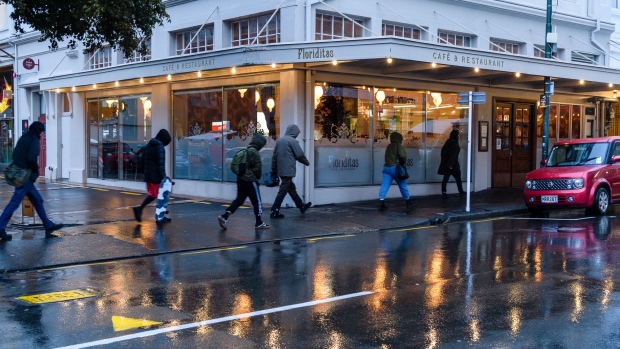Jul 15, 2020
New Zealand Inflation Slows as Virus Lockdown Stalls Economy
, Bloomberg News

(Bloomberg) -- New Zealand inflation slowed in the second quarter, falling toward the low-end of the central bank’s target range, as the Covid-19 lockdown stalled the economy and global oil prices dragged.
- Consumer prices fell 0.5% from the first quarter, Statistics New Zealand said Thursday in Wellington. That’s the first quarterly decline since 2015; economists tipped a 0.6% drop
- Inflation slowed to 1.5% from a year earlier, compared with 2.5% in the first quarter and the 1.3% expected by economists
Key Insights
- The Reserve Bank’s baseline scenario outlined in its May policy statement projected inflation would slow to 1.3% in the second quarter and 0.3% by the end of the year
- The RBNZ slashed the official cash rate to 0.25% and embarked on a NZ$60 billion ($39 billion) quantitative easing program to combat the pandemic hit economy; it is tipped to do more in August in order to meet the 1-3% inflation target
- Statistics agency said the nationwide lockdown -- that ended May 13 -- made measurement of prices such as airfares, public transport and rents more difficult, and may have created volatility in the data
Other Data
- Consumer prices excluding food, fuel and energy rose 1.9% from a year earlier, slowing from 2.3% in the first quarter, while other measures of underlying inflation were softer. The RBNZ publishes its own core measure later Thursday
- Tradables prices fell 0.6 from a year earlier, led by cheaper fuel -- gasoline prices slumped 12% in the quarter, the most since 2008
- Non-tradable prices, which are less influenced by the currency, rose 3.1% from a year earlier led by rents and tobacco tax impacts
Market Reaction
- The New Zealand dollar was little changed after the report, buying 65.75 U.S. cents at 11:00 a.m. in Wellington
©2020 Bloomberg L.P.